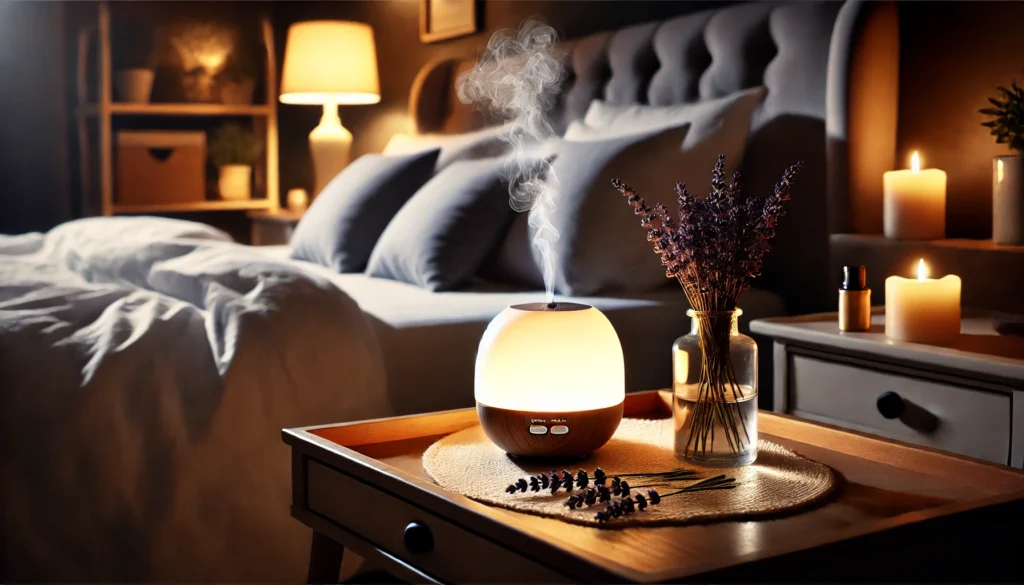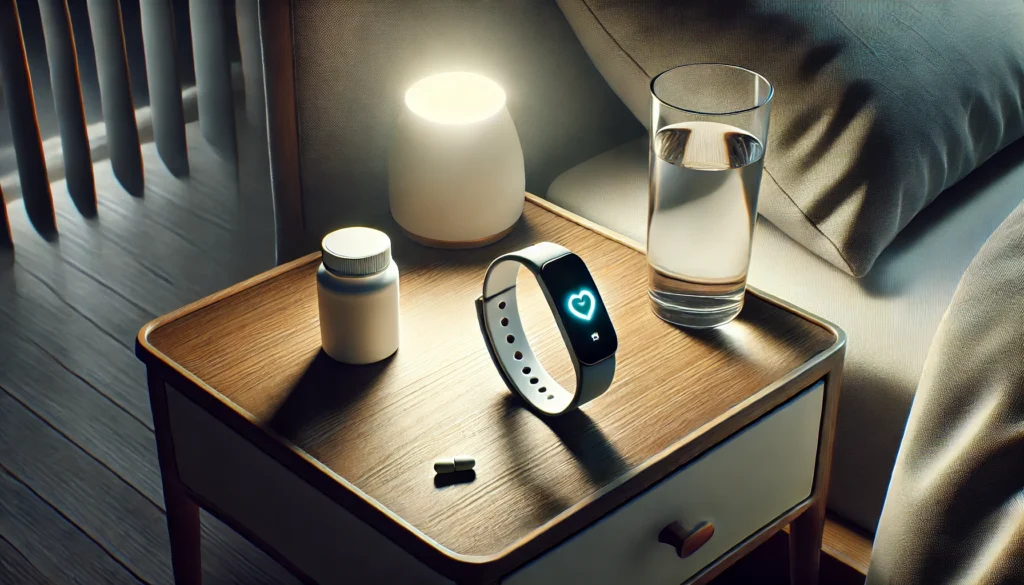Sleep is a vital part of our lives. It’s a time for our bodies to rest, rejuvenate, and prepare for the next day.
However, many of us struggle to get the quality sleep we need. This can be due to various factors, from stress and anxiety to medical conditions.
Over-the-counter (OTC) sleep aids have become a popular solution for many. They offer a way to improve sleep without the need for a prescription.
In this article, we’ll delve into the world of OTC sleep aids. We’ll explore their effectiveness, safety, and suitability for different types of sleep issues.
Our goal is to provide you with comprehensive information to help you make informed decisions about your sleep health.
So, whether you’re a health coach, a science journalist, or a biohacker, this guide to the top over-the-counter sleep aids is for you.
You May Also Like: Sleep Hygiene: Key Practices for Health
Understanding Sleep and Its Importance
Sleep is more than rest; it’s vital for good health. Quality sleep can impact nearly every aspect of our well-being.
During sleep, our bodies perform essential functions. These include repairing cells, processing information, and regulating hormones.
Lack of sleep can lead to several health issues. These include weakened immunity, cognitive decline, and mood disorders.
Understanding the importance of sleep involves recognizing its many benefits. These extend beyond physical health to mental resilience and emotional balance.
- Improves memory and cognitive function
- Enhances mood and reduces stress
- Boosts immunity and energy levels
- Supports healthy metabolism
Acknowledging these benefits highlights the significance of a consistent sleep schedule. It also emphasizes the importance of creating a favorable environment for restful sleep.
Prioritizing sleep is as important as diet and exercise. It plays a crucial role in maintaining a balanced and healthy lifestyle.
Common Causes of Sleep Disturbances
Sleep disturbances can arise from various factors. Stress and anxiety are the most common culprits. They often lead to restless nights.
Lifestyle choices also play a significant role. Irregular sleep schedules, excessive caffeine, and alcohol intake can disrupt sleep patterns. These factors often contribute to difficulty falling or staying asleep.
Environmental conditions can impact sleep quality as well. Noise, light pollution, and uncomfortable sleeping arrangements can hinder restful sleep.
Medical conditions should not be overlooked. Chronic pain, sleep apnea, and restless leg syndrome are conditions that can cause significant sleep disruption. Recognizing and addressing these causes is crucial for improving sleep quality.

How Over-the-Counter Sleep Aids Work
Over-the-counter (OTC) sleep aids function by facilitating the body’s natural sleep processes. They often include ingredients that enhance drowsiness, making it easier to fall asleep quickly. These aids aim to normalize sleep cycles without requiring a prescription.
Most OTC sleep aids contain antihistamines. Antihistamines are commonly used to treat allergies, but they can induce drowsiness as a side effect. This makes them effective for short-term insomnia relief.
Some sleep aids aim to reduce anxiety. Ingredients like valerian root act as mild sedatives. These can help calm the mind for a peaceful transition to sleep.
Here is a short list of common OTC sleep aid ingredients:
- Diphenhydramine
- Doxylamine succinate
- Valerian root
- Magnesium
Choosing the right sleep aid depends on individual needs. Understanding how each ingredient works can make a difference in achieving restful sleep.
Melatonin and Its Role in Sleep
Melatonin is a hormone produced by the pineal gland. It plays a critical role in regulating sleep-wake cycles. As night falls, melatonin levels naturally increase, signaling that it’s time for sleep.
Many people turn to melatonin supplements. These are used to help reset internal clocks, especially in cases of jet lag or shift work. Taking melatonin supplements can mimic the body’s natural rise in melatonin, promoting sleep.
However, not everyone may benefit from melatonin supplements. Some individuals experience vivid dreams or grogginess upon waking. In such cases, exploring other sleep aids or alternatives might be more effective.
Still, melatonin is a popular choice due to its natural resemblance to the body’s own sleep processes. Proper use is key to reaping its benefits.
Non-Melatonin Alternatives
When melatonin isn’t an option, several effective non-melatonin alternatives exist. Herbal remedies like valerian root and chamomile are popular choices. These natural options are known for their calming effects on the nervous system.
Another option is magnesium supplements. Magnesium aids in muscle relaxation and has been linked to better sleep quality. It’s often recommended for those with sleep disturbances tied to muscle tension.
L-theanine, an amino acid found in tea, offers a different approach. Known for its relaxation properties, it helps improve overall sleep quality without sedation. Unlike some other aids, it doesn’t leave users feeling groggy upon waking.
Non-melatonin alternatives provide a viable solution for individuals sensitive to melatonin. Each option offers unique benefits suited to diverse sleep needs.
Reviewing the Best Over-the-Counter Sleep Aids
Exploring over-the-counter sleep aids reveals an array of options tailored to various needs. Each product claims to offer distinct advantages for better sleep. Understanding their effectiveness can guide you in selecting the best fit.
ZzzQuil, a well-known brand, contains diphenhydramine. This ingredient is an antihistamine that promotes drowsiness, making it suitable for occasional sleeplessness. Users often appreciate its ability to induce sleep without lingering side effects.
Unisom SleepTabs offer another approach with doxylamine succinate. Known for its sedative properties, this ingredient is often favored for its lasting effects. It’s beneficial for individuals requiring more extended sleep coverage.
Some prefer herbal supplements such as Natrol Melatonin. These supplements replicate the body’s natural melatonin, aiding those with jet lag or irregular sleep schedules. It’s praised for its non-synthetic formulation and gentle action.
Key OTC sleep aids include:
- ZzzQuil: Diphenhydramine-based.
- Unisom SleepTabs: Doxylamine succinate formula.
- Natrol Melatonin: Natural melatonin supplement.
- Olly Sleep Gummies: Blend of melatonin, L-theanine, and botanicals.
Olly Sleep Gummies combine melatonin with L-theanine and herbs. This blend promotes relaxation and sets the stage for quality sleep. Its gummy form appeals to those who prefer chewable aids.
The choice of sleep aid greatly depends on individual preferences and needs. When evaluating options, consider the active ingredients and their potential side effects. Consulting reviews and user testimonials can provide additional insights.
Balancing effectiveness with safety is critical in selecting the right OTC sleep aid. Consider starting with a small dose to gauge its impact on your sleep quality. It’s also prudent to consult a healthcare provider for tailored advice.
Non-Habit Forming Sleep Aids
Non-habit forming sleep aids are designed to support sleep without causing dependence. This feature is crucial for those seeking short-term relief from insomnia. Such aids are typically composed of natural or mild ingredients.
Valerian root supplements exemplify non-habit forming characteristics. Known for its calming effects, valerian helps ease into sleep gently. It’s often considered safe for long-term use without adverse dependency issues.
Chamomile teas and extracts also fall under this category. They soothe anxiety and promote relaxation naturally. These are excellent options for individuals wary of synthetic medications.
Non-habit forming options prioritize user safety and promote healthy sleep cycles. Many users gravitate towards these due to their gentle, natural formulas. The peace of mind from using a non-addictive product significantly enhances the overall experience.
Best Non-Prescription Sleep Aids for Different Needs
Different individuals have unique sleep challenges. Non-prescription sleep aids tailored for specific requirements offer versatile solutions. Whether addressing occasional sleeplessness or more persistent issues, there are suitable options available.
For light sleepers or those with minor disruptions, melatonin supplements work well. They can assist in reestablishing regular sleep patterns effectively. Their timing and dosage can be adjusted based on individual responses.
When deeper sleep is necessary, products like Unisom may be ideal. With its powerful sedative, it ensures prolonged rest. It’s best for those needing comprehensive overnight support.
For stress-induced insomnia, L-theanine and herbal blends are recommended. These address anxiety, promoting peace before bedtime. Olly Sleep Gummies, with their comprehensive blend, cater to this need.
Situational needs may call for different aid strengths. Some may prefer combining sleep aids with lifestyle changes. For quick results, short-term options are preferable, but for ongoing issues, consistent aids may be required.
Choosing the right non-prescription sleep aid involves assessing personal health and lifestyle. A brief evaluation of ingredients and their potential impact aids in informed decision-making. Tailoring sleep aids to individual needs enhances both experience and efficacy.

Safety and Side Effects of OTC Sleep Medications
Understanding the safety profile of over-the-counter sleep aids is essential. While generally safe, these medications can have side effects. It’s important to recognize potential risks before use.
Common side effects include drowsiness and dry mouth. Some users may also experience dizziness or grogginess. These effects vary based on individual tolerance and medication type.
Interactions with other drugs or alcohol can elevate risks. It’s crucial to avoid combining sleep aids with depressants. This can lead to compounded sedative effects, posing health dangers.
Before starting any OTC sleep aid, consider consulting a healthcare professional. They can provide advice tailored to your health condition. This ensures that your chosen sleep aid aligns well with your overall wellness plan. Understanding both benefits and risks leads to more informed use.
Natural and Lifestyle Approaches to Better Sleep
Improving sleep doesn’t always require medication. Natural approaches and lifestyle changes can boost sleep quality. Many people find success through these methods.
Stress reduction techniques like meditation can aid restful sleep. Simple breathing exercises also work wonders. They help calm the mind before bed.
Diet and exercise play pivotal roles. Consuming sleep-supportive foods can help regulate your sleep cycle. Regular physical activity, especially in the morning, promotes better sleep at night.
Adopting a holistic approach blends lifestyle changes with other sleep aids. Here’s a list of natural strategies:
- Limit caffeine and alcohol, especially in the evening.
- Establish a relaxing bedtime routine.
- Maintain a consistent sleep schedule.
- Create a restful sleep environment by minimizing noise and light.
Sleep Hygiene Tips
Sleep hygiene encompasses good habits that help you sleep well. It’s a cornerstone of healthy sleep routines. Implementing sleep hygiene tips can improve sleep quality significantly.
First, consistency is key. Try to sleep and wake up at the same time every day. This helps regulate your body’s internal clock.
Next, make your sleep environment conducive to rest. Keep the bedroom cool, quiet, and dark. Good ventilation can enhance comfort and reduce disturbances.
Stimulating activities before bed should be minimized. Avoid screens and intense discussions. Opt for reading or relaxing music instead.
Emphasizing good sleep hygiene is both simple and effective. Here are useful tips:
- Reserve the bed for sleep and intimacy only.
- Wind down with calming activities an hour before bed.
- Manage stress through journaling or gentle yoga.
- Limit naps to early afternoon and under 30 minutes.
The Role of Sleep Assist Devices and Apps
In our digital era, sleep assist devices and apps have become valuable tools. They offer unique solutions to help track and improve sleep patterns. Many users find these technologies both convenient and effective.
Sleep trackers, for instance, monitor sleep stages. They provide insights into disturbances and sleep quality. Smartwatches and bedside monitors often include this feature.
Apps designed for sleep offer relaxation techniques and soothing sounds. Guided meditations and white noise playlists are common offerings. These digital aids enhance relaxation and promote restful sleep.
Adopting such technologies can complement other sleep strategies. They help identify issues and fine-tune sleep habits, ultimately encouraging better rest.
Expert Opinions and Latest Research
Experts in sleep medicine continually examine the efficacy of over-the-counter sleep aids. They explore both traditional and novel solutions. Their insights are grounded in rigorous scientific research.
Recent studies reveal that not all OTC aids are equally effective. For some individuals, non-melatonin alternatives show promise. These alternatives often cater to users sensitive to melatonin’s effects.
Researchers emphasize the importance of understanding the active ingredients. Potential interactions with other medications or conditions should be evaluated. This awareness helps prevent adverse effects.
The field of sleep science is dynamic and evolving. New studies frequently shed light on better solutions. Staying informed about the latest research can greatly enhance sleep management strategies.

Conclusion and Safe Use Recommendations
Selecting the best over-the-counter sleep aid can be challenging. However, understanding your specific needs and options makes it easier. Consider factors like duration of use and your sleep issues.
Consulting with healthcare professionals remains essential before starting any sleep aid. They can provide advice tailored to your health profile. This helps ensure safe and effective use.
Follow product instructions carefully to avoid potential side effects. Monitor your body’s response and adjust as necessary. Prioritizing safety and informed decisions fosters healthier sleep patterns.
Further Reading:
Harvard Health Publishing: Are drugstore sleep aids safe?
Cleveland Clinic: What to Know About Over-the-Counter Sleep Aids
Verywell Health: Unisom vs Benadryl: Which Sleep Aid Is Best for You?
Important Note: The information contained in this article is for general informational purposes only, and should not be construed as health or medical advice, nor is it intended to diagnose, prevent, treat, or cure any disease or health condition. Before embarking on any diet, fitness regimen, or program of nutritional supplementation, it is advisable to consult your healthcare professional in order to determine its safety and probable efficacy in terms of your individual state of health.
Regarding Nutritional Supplements Or Other Non-Prescription Health Products: If any nutritional supplements or other non-prescription health products are mentioned in the foregoing article, any claims or statements made about them have not been evaluated by the U.S. Food and Drug Administration, and such nutritional supplements or other health products are not intended to diagnose, treat, cure, or prevent any disease.


